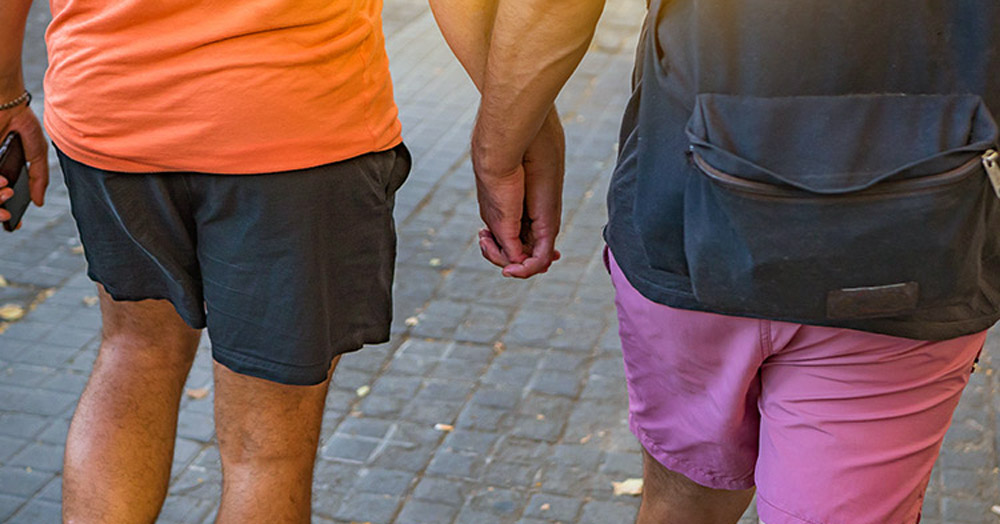Discrimination and stigma remain a dominant issue facing the LGBT+ community in Ireland, exacerbated by a lack of much-needed policy reform, according to new findings.
In the lead up to International Day Against Homophobia, Transphobia and Biphobia on Sunday, May 17, LGBT+ people have spoken out about a worrying increase of discrimination within their everyday lives. As shown by a recent EU Fundamental Rights Agency (FRA) survey, 43% of respondents felt discriminated against in 2019, which marks a stark rise from 37% in 2012.
The survey also notes that 60% of trans people opened up about experiencing discrimination in their everyday life in 2019, which contrasts against 43% of respondents in 2012. In one case study, a 19 year-old transgender man said he and his then-boyfriend were attacked in public, “We had bottles thrown at us, a woman spit on us, and a good few people make comments like ‘you two shouldn’t be holding hands’.”
A 22 year-old queer woman in Ireland said she doesn’t “feel comfortable or safe being open about my sexuality or identity in Ireland.” And a 17 year-old bisexual boy shared that he has “been in the closet ever since I was 13. Since then I was afraid to come out because of being afraid that my family would reject me, fear that I would be kicked out, fear that I would be met with verbal/physical violence from my peers.”
Over 2,300 people in Ireland took part in the largest international LGBT+ report to date, titled A Long Way to Go For Equality. On the FRA website, an overview of the recently published survey states, “Comparing the results of the 2012 and 2019 surveys shows little, if any, progress. In some areas, the situation got even worse. Importantly, the EU averages mask huge differences between countries. In some, over 70% of LGBT people say society is more tolerant while in others, up to 68% say it is less.”
In conjunction with the FRA survey, the 2019 LGBT Ireland Annual Report further highlights the need for robust Hate Crime legislation and a greater push for LGBT+ awareness in the public sector. On Twitter, they wrote, “Our frontline services stats highlight that overcoming stigma and discrimination remains the greatest challenge for those who contact us.”
We release our Annual Report this week ahead of #IDAHOBIT2020 on Sunday May 17th. Our frontline services stats highlight that overcoming stigma and discrimination remains the greatest challenge for those who contact us. #IDAHOTB pic.twitter.com/leREXmVhoK
— LGBT Ireland (@LGBT_ie) May 13, 2020
Workplace discrimination has also become more prevalent as 21% of LGBT+ respondents felt discriminated at work in 2019 compared to 19% in 2012. One person shared, “I am a teacher and I am scared to speak freely about my sexual orientation. I wish my sexual orientation wasn’t an issue in the workplace.”
We will release our Annual report Thursday, May 14 in tandem with ILGA-Europe's #RainbowEurope Map and the results of FRA 2020 LGBTI survey on hate crime and discrimination against LGBTI people#LGBTIsurvey #PrideNoPrejudice pic.twitter.com/O6mhDeXC34
— LGBT Ireland (@LGBT_ie) May 13, 2020
The ILGA Europe survey also details that in the UK, North Macedonia and Serbia, only one in three believe their government effectively addresses and combats intolerance.
Speaking of Ireland’s ranking on the ILGA Rainbow Map, LGBT Ireland expressed on Twitter, “Ireland has made huge strides on LGBTI+ issues, despite this progress we rank 18th in Europe on LGBTI+ law and policy according to the @ILGAEurope #RainbowEurope. Our annual report will highlight the work which needed for LGBTI+ people who face additional marginalisation.”
Ireland has made huge strides on LGBTI+ issues, despite this progress we rank 15th in Europe on LGBTI+ law and policy according to the @ILGAEurope #RainbowEurope
Our annual report will highlight the work which needed for LGBTI+ people who face additional marginalisation. pic.twitter.com/nX6YzE2IEw— LGBT Ireland (@LGBT_ie) May 14, 2020
Speaking to the Journal.ie, FRA Director Michael O’Flaherty expressed that, “Too many LGBTI+ people continue to live in the shadows, afraid of being ridiculed, discriminated or even attacked.”
The recent findings arrived during a time when the LGBT+ community face a drastic increase in anti-LGBT+ rhetoric amid COVID-19, from Hungary to South Korea. This year’s theme for the International Day Against Homophobia, Transphobia and Biphobia is ‘Breaking The Silence’ – a much needed call for action and community voices to speak out against the rise in discrimination.
© 2020 GCN (Gay Community News). All rights reserved.
Support GCN
GCN is a free, vital resource for Ireland’s LGBTQ+ community since 1988.
GCN is a trading name of National LGBT Federation CLG, a registered charity - Charity Number: 20034580.
GCN relies on the generous support of the community and allies to sustain the crucial work that we do. Producing GCN is costly, and, in an industry which has been hugely impacted by rising costs, we need your support to help sustain and grow this vital resource.
Supporting GCN for as little as €1.99 per month will help us continue our work as Ireland’s free, independent LGBTQ+ media.
